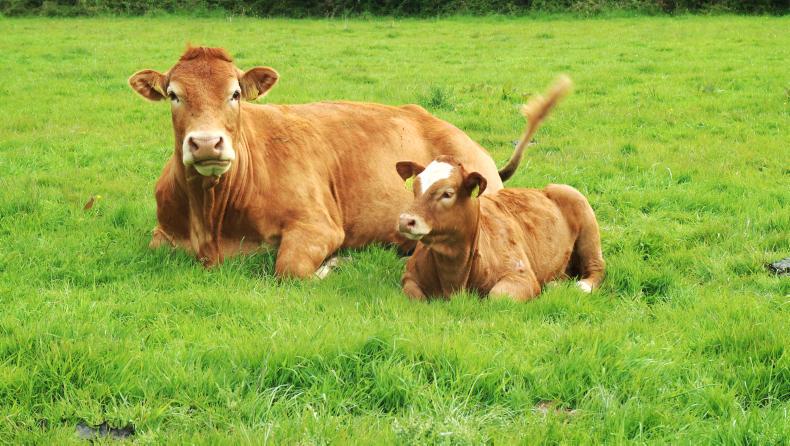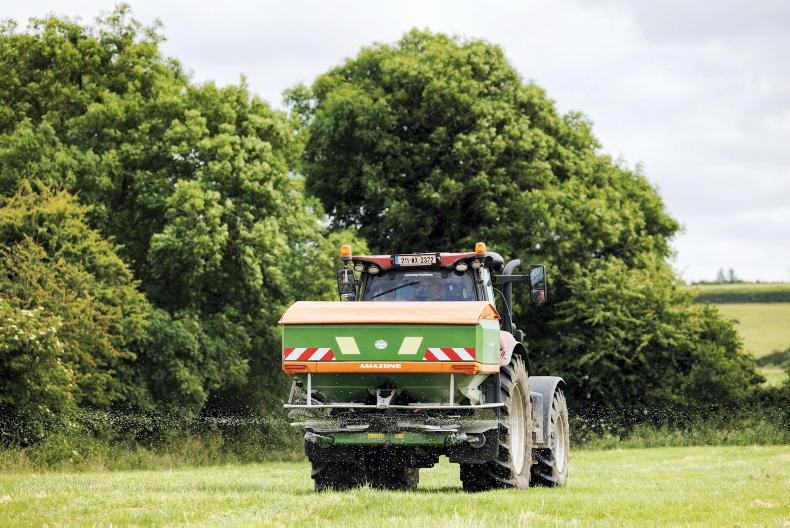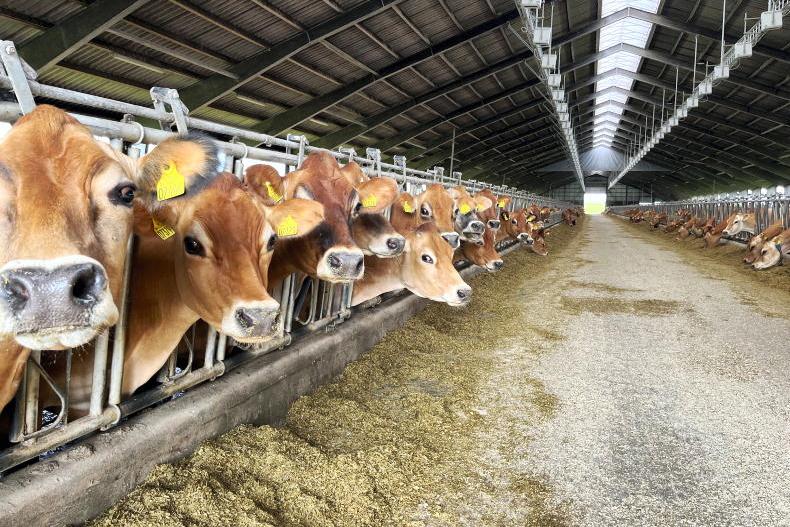New research into the use of a type of red seaweed to reduce methane emissions from cattle has “significant” potential for Ireland, according to State agency Údaras na Gaeltachta.
Reductions of between 40% and 98% in methane emissions have been achieved in trials in the US, Australia and New Zealand, and the Gaeltacht development authority is supporting similar work undertaken by a west Cork marine technology company.
Listen to "Seaweed and methane" on Spreaker.
Bantry Marine Research Station, which is now owned by veterinary pharmaceuticals company Bimeda, has been testing the effectiveness of the red seaweed species Asparagopsis armata in animal feed here.
Ireland has a long history in hand harvesting seaweed growing along the 7,800km Irish coastline, and its value has been in its gelling agent, used in everything from ice cream to “heads” on beer.
Its many health benefits are now fuelling a multi-billion euro global industry that is focused on increasing cultivation of marine algae.
A Canadian farmer’s observation that dairy cattle feeding near shorelines seemed healthier and produced more milk led to widespread use of seaweeds in animal feed.
However, the discovery that a particular red seaweed could have a positive impact on ruminant animals’ digestion was made by Canadian scientist Dr Rob Kinley some three years ago.
His research in Canada and latterly in Australia showed that Asparagopsis taxiformis could reduce methane emissions by up to 99% if added in small quantities to animal feed, as hydrogen, rather than methane, was produced.
It was estimated that if just 10% of global ruminant producers used it as a feed additive, it would have the climate change equivalent of removing 50 million cars from roads.
Dr Kinley, who undertook his research with the Australian Common Scientific and Industrial Research Organisation (CSIRO), has since visited Ireland and has been collaborating with the Bantry Marine Research Station.
Asparagopsis taxiformis is endemic to the southern hemisphere, but is similar to another red seaweed, Asparagopsis armata which was discovered in Irish waters about 60 years ago. It was cultivated in the late 1990s in Ard Bay, Co Galway by research company Taighde Mara Teo.
The red seaweed would have to be farmed here to meet sufficient quantities, the research station’s general manager David O’Neill points out, and can be grown on land as well as in the sea.
He estimates animals fed with the constituent here could reduce emissions by 50% to 60%.
The marine research company is co-operating with Údaras na Gaeltachta and Teagasc, and hopes to raise funds for more animal trials.
Údaras na Gaeltachta director of enterprise, employment and property Dr Mark White said there could be a benefit for both farmers and climate change targets if the Bantry station’s work on the red seaweed additive does prove fruitful.
Teagasc principal research officer Prof Sinead Waters, who is also adjunct professor at the Ryan Institute, NUI Galway, said that while initial results from Australia and elsewhere are positive, “further research is warranted”.
Prof Waters and Teagasc colleague Dr Maria Hayes, are involved in two projects testing various feed additives for ability to reduce enteric methane emissions from ruminants – “Meth-Abate”, funded by the Department of Agriculture, Food and Marine, and “SeaSolutions”, an EU-funded project with other Irish, EU and Canadian partners.
“There are a lot of caveats, such as bromoform, a compound within seaweed which is a known to reduce methane emissions but is also a known carcinogen. We need to ensure that if seaweed is fed to ruminants that no bromoform or other residues appear in the end meat and milk products,” Prof Waters said.
Sustainability, cost-effectiveness and appropriate mode of delivery to animals are all factors which have to be investigated, she said.
“The research by Dr Kinley is very exciting, but we need to understand the long-term impacts of any potential methane abatement product on production, on the rumen and any negative effects which may also affect human health or the environment,” she said.










SHARING OPTIONS